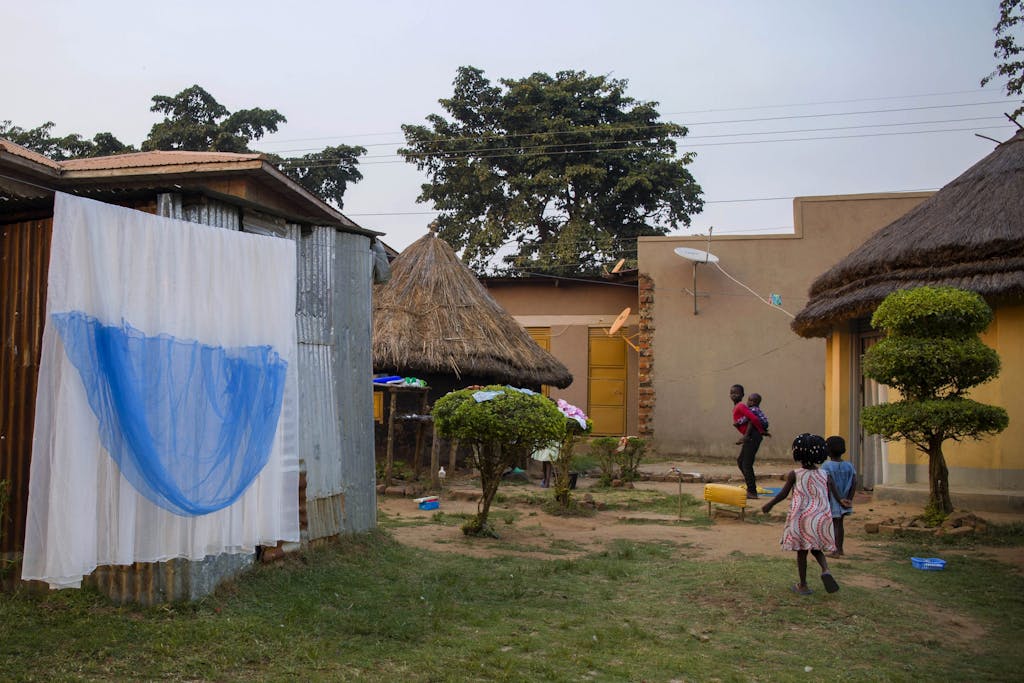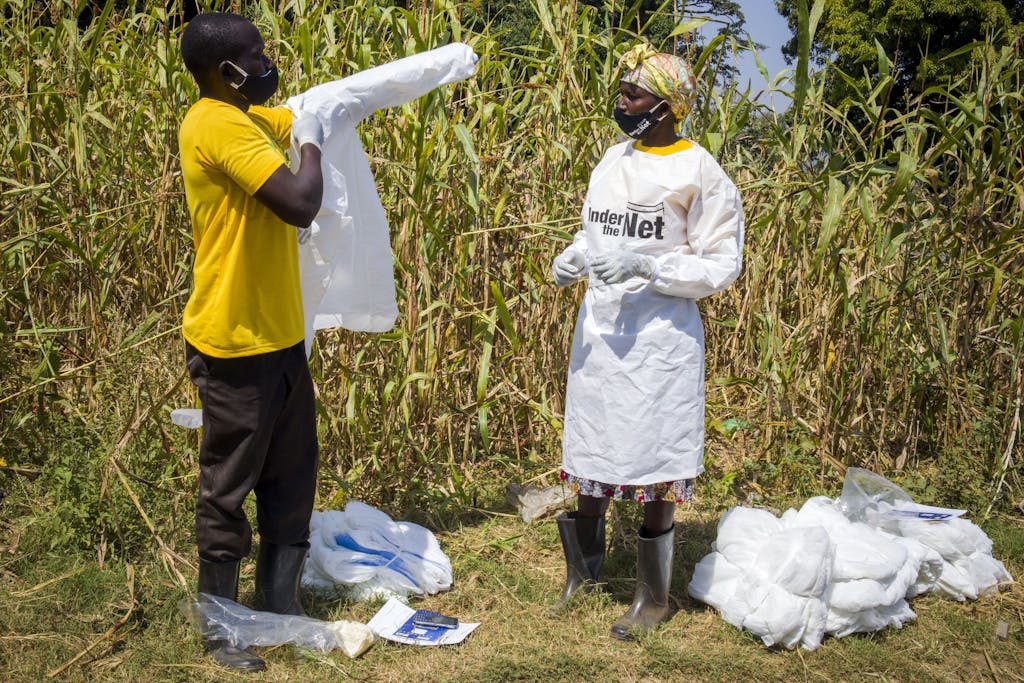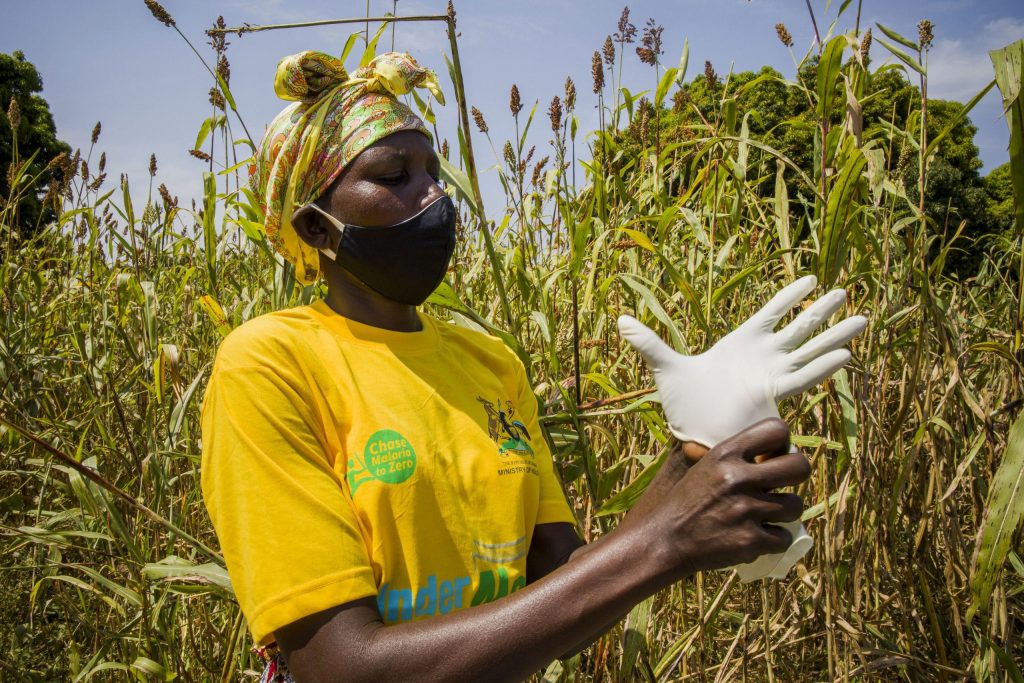Alice Mazakpe is a group well being worker in Uganda. As an component of the Village well being workforce, she travels to rural villages throughout the nation to go to properties, assess well being wants, and practice Ugandans discover out how to forestall infectious illnesses.
well being staff like Alice are typically the one line of protection protecting rural populations protected in opposition to thought-about one of many world’s most historic and debilitating illnesses: malaria. thought-about one of Alice’s primary jobs is to distribute malaria-stopping mattress nets and to be sure people are using them precisely. it would sound to be a straightforward process, nonetheless the effectiveness of mattress nets pertains to human conduct and information round their utilization. mattress nets are thought-about one of many value-efficient methods to forestall malaria; these gives and the essential messages Alice and utterly different group well being staff share are very important to be sure at-risk populations are ready to maintain malaria-free.
“each time we go to properties in our group, we prioritize kids beneath 5 years and pregnant ladies as a outcome of they’re most weak to succumbing to malaria. We encourage of us to assist themselves by sleeping beneath mosquito nets as a measure to mitigate the unfold of malaria in our group,” explains Alice.

Since mattress nets are dealt with with insecticide to kill malaria-carrying mosquitoes, they current better than a bodily barrier from the pests; in addition they cease the illness from spreading extra by actually killing the mosquitoes. In utterly different phrases, past private safety, mattress nets current group safety. nonetheless, mattress nets are solely useful in stopping malaria in the event that they’re of super extreme quality, in the event that they’re used precisely, and if of us sleep beneath them every evening time. The problem for a well being worker, past distributing mattress nets, is to practice communities about their appropriate use and care.
The nets require particular care and a spotlight to be sure they will shield of us for as prolonged as a outcome of the nets are purported to final, typically round three years. If of us don’t know discover out how to correctly wash and retailer their nets, they acquired’t final or shield, thereby growing a group’s risk of getting sick.
one other problem is to be sure nets are used solely for his or her supposed aim. “We had been ready to finish the horrible behavior of youthful boys using mosquito nets as a soccer aim internet. As antimalarial treatment are costly to buy, our biggest likelihood lies in stopping malaria as an alternate of making an try to deal with it after the exact actuality,” acknowledged Alice.
That’s the place the dedication to extreme quality and innovation of private sector companions like Vestergaard is obtainable in. a extreme producer of prolonged-lasting insecticidal nets (LLINs) for many years, Vestergaard works to be sure Ugandans have entry to sturdy, efficacious, and sustainable malaria-prevention merchandise that save lives.
the true impression of Malaria in Uganda
Malaria is the main motive for sickness and loss of life in Uganda, accounting for as a lot as 50% of all visits to well being services. Malaria’s impression ripples all by way of Ugandan society by straining well being care strategies and severely limiting of us’s capability to go to work or school. Recognizing this, Uganda has made concerted efforts to obtain all populations with entrance-line well being staff like Alice and the Village well being teams.
When the COVID-19 pandemic hit, these efforts had been weak to stalling. attributable to lockdowns and factors with the worldwide current chain, there was good concern that delays inside the customary distribution of mattress nets may reverse positive factors reworked the previous 20 years to cease malaria.

picture: Vestergaard/Edward Echwalu
combating Malaria Amid the Pandemic
understanding the risks of COVID-19, with the assist of Uganda’s public well being authorities, these entrance-line well being staff have bravely tailored their work to proceed defending of us from malaria, the pandemic, and utterly different illnesses. regardless of a difficult and not sure work environment, well being staff have embraced new processes and new norms of group, communication, and teaching. they’ve demonstrated resilience by quickly adapting mass internet distributions to a door-to-door distribution mannequin or by way of crowd-managed factors of distribution in villages to restrict interactions. When mass distribution is the one possibility, well being staff carefully observe advisable an infection administration measures to shield themselves and the communities they serve. They continued to share very important messages on how most interesting to shield from malaria and utterly different sicknesses. assist from Vestergaard and utterly different private sector companions to safe the worldwide current chain and permit the distribution of nets to proceed has additionally performed an limitless function in getting prevention efforts again on observe so as that progress in opposition to malaria in Uganda, and globally, is protected.
These well being staff, and the institutions, organizations, and firms that assist them are lifesavers. They make it attainable for the place somebody lives doesn’t decide if that particular person lives and that everyone, all by way of the place can have entry to efficient devices to safeguard their well being and properly-being.
Vestergaard is a proud sponsor of the UN basis’s Unite for well being advertising campaign. we’re all safer and stronger as quickly as we #UniteforHealth
Featured picture: Vestergaard/Edward Echwalu

